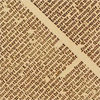ГРАЂАНСКИ РАТ И ПРИРОДНО СТАЊЕ КОД ХОБСА
CIVIL WAR AND THE STATE OF NATURE IN HOBBES
Author(s): Vladimir Ž. MilisavljevićSubject(s): Military history, Early Modern Philosophy, Evaluation research, 19th Century
Published by: Српско социолошко друштво
Keywords: citizen; civil war; society; sovereignty; state of nature;
Summary/Abstract: The paper deals with one of the important questions of Hobbes’s philosophy, the relationship between his theoretical model of the state of nature and the historical phenomenon of civil war, which profoundly marked Hobbes’s life as well as his thought. Civil war doesn’t appear explicitly as an example of the state of nature in Hobbes’s works prior to Leviathan (such as The Elements of Law or De cive). However, the way in which Hobbes describes the consequences of civil war, which tears apart the fabric of civil society – most often in the context of his criticism of the separation of powers doctrine – closely resembles a relapse into what he calls the state of nature or war of everybody against everybody. The final part of the article argues that civil war is the best paradigm of the state of nature in Leviathan by way of comparative analysis with two other examples thereof Hobbes gives in this book (the condition of the „savage people“ of America and the relations between sovereign states).
Journal: Социолошки преглед
- Issue Year: 50/2016
- Issue No: 4
- Page Range: 473-489
- Page Count: 17
- Language: Serbian

